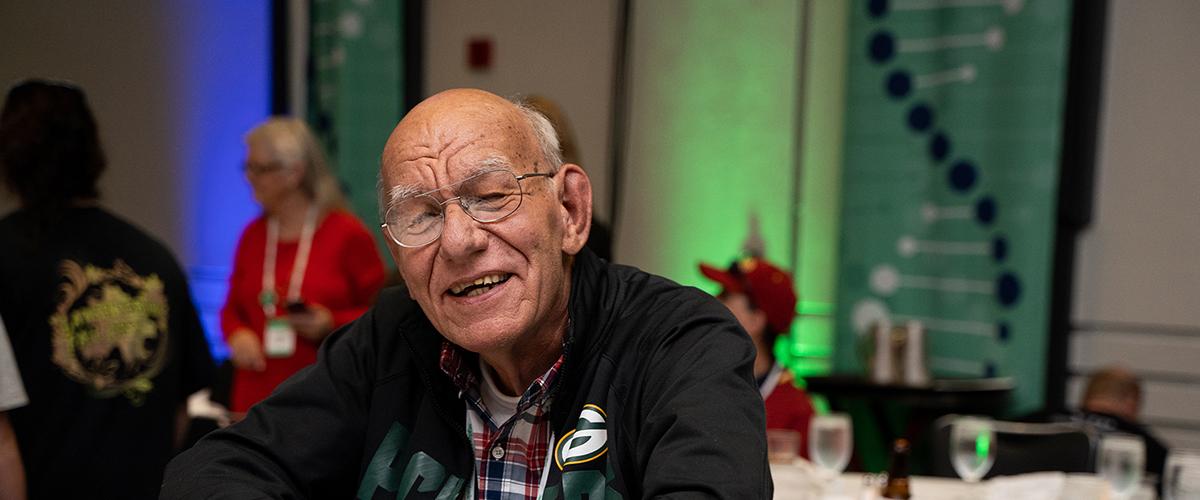In November, MDF staff met with the National Institute of Arthritis and Musculoskeletal and Skin Diseases (NIAMS) and the National Institute of Neurological Disorders and Stroke (NINDS) senior leadership and program/policy staff to discuss research opportunities and federal support for myotonic dystrophy (DM). Discussions focused on two areas: the scientific workforce and biomarker and registration endpoint development.
MDF reviewed efforts to support the scientific workforce through the MDF Postdoctoral Research Fellowship program and expressed support for NIAMS and NINDS efforts to extend their R01 paylines for new investigators. Dr. Steve Katz, Director, NIAMS, noted that 58% of K award recipients successfully transition to R type awards and encouraged clinical researchers in DM to utilize the K award mechanism. Dr. Walter Koroshetz, Director, NINDS, noted that 22 academic medical centers currently held NINDS R25 awards to support resident’s research in neurology; he encouraged faculty working on DM at these medical centers to take full advantage of the R25 awards.
MDF also encouraged NIAMS and NINDS to consider mechanisms to support young faculty seeking to renew their initial R01 awards. This is often a critical stage for young investigators (and NIH data bear that out), as they have had to set up their lab, produce on proposed projects, and gather preliminary data for specific aims of the renewal within the initial five or fewer years of funding. The NIAMS and NINDS directors indicated that they were sensitive to the issue. Dr. Katz noted the NIAMS STAR Program (Supplements to Advance Research from Projects to Programs). This program provides up to $150,000 per award in administrative supplements to young faculty on their initial R01 who need additional time and data to obtain either a renewal or a new R01 award. Young faculty with an initial R01 from NIAMS should review the program announcement.
MDF staff also reviewed the Foundation’s role in addressing opportunities and challenges along the entire therapeutic development pipeline. The potential for development and qualification of biomarkers for use in early phase clinical development was highlighted as a timely opportunity in DM. Likewise, overcoming the challenges in developing registration endpoints for drugs and biologics under development for DM were identified as a critical need.
NIAMS Staff pointed to RFA-AR-17-009, Research Innovations for Scientific Knowledge (RISK) for Musculoskeletal Diseases (R61/R33), a program designed for high-risk projects, as a potential means of funding biomarkers and clinical endpoints in DM. NINDS has a continuing program targeted at clinical trial readiness (including biomarker and endpoint development): PAR-16-020, Clinical Trial Readiness for Rare Neurological and Neuromuscular Diseases (U01).
Since the NIAMS initiative has only one application date, and the NINDS initiative is intended for mature projects, such as biomarker qualification efforts, MDF staff strongly encouraged both institutes to consider an initiative to facilitate early discovery and development of biomarkers and endpoint measures for DM. MDF believes the existing funding opportunities are important, and should be considered by investigators, but noted that early stage discovery projects in these areas may not compete well with hypothesis-driven applications and that a targeted initiative is a critical need for the DM field.
Taken together, MDF will remain engaged with the NIH, meeting on a regular basis to ensure that opportunities and critical needs in the DM field receive attention. DM researchers are encouraged to make opportunities and needs known to MDF staff so they can be incorporated into discussions with NIH leadership and program staff.

